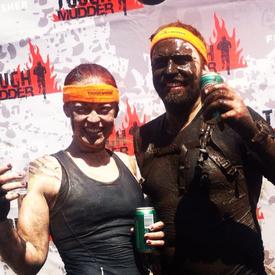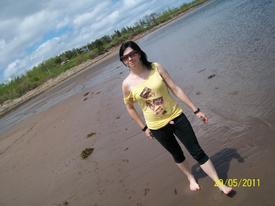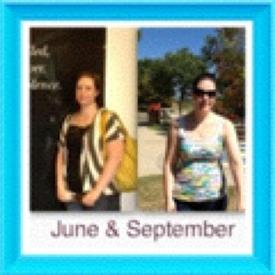Does barefoot running reduce injury?

niallse
Posts: 58 Member
Is there anyone out there who has suffered recurring injury, and has been tempted to try barefoot running/minimalist shoes and had positive results?
I’m a pretty average club runner, running between 20-25 miles per week at about 8 min miles. Over the past year or so I have been experiencing increasing levels of pain in my Achilles, knees and hips when I run. 2 years ago my left Achilles ruptured. I had it repaired and thankfully I don’t seem to have experienced any direct problems with it since. My right Achilles is unfortunately beginning to swell. Urgh!!
By this point, some might be thinking it’s time to give up running and take up walking or something a little gentler on the joints. I do walk about 25 miles each week as part of my commute to work and have noticed that this is pretty much pain free.
Now the connection... I run in Asics Kayano 18 or Asics 2170 shoes, designed for overpronators and to provide maximum support. I walk in flat shoes. I am beginning to think that all this support and protection my feet are getting from these expensive trainers isn’t actually benefiting me (I have to be careful what I say here!!), and that perhaps going back to basics is the answer. I.E. running barefott or in minimalist shoes.
I only took up running to lose weight but now love it and the social side of being in a club. I don’t want to have to stop running, but fear I may have to if I cannot find a solution.
All comments welcome.
Thanks
Mick.
I’m a pretty average club runner, running between 20-25 miles per week at about 8 min miles. Over the past year or so I have been experiencing increasing levels of pain in my Achilles, knees and hips when I run. 2 years ago my left Achilles ruptured. I had it repaired and thankfully I don’t seem to have experienced any direct problems with it since. My right Achilles is unfortunately beginning to swell. Urgh!!
By this point, some might be thinking it’s time to give up running and take up walking or something a little gentler on the joints. I do walk about 25 miles each week as part of my commute to work and have noticed that this is pretty much pain free.
Now the connection... I run in Asics Kayano 18 or Asics 2170 shoes, designed for overpronators and to provide maximum support. I walk in flat shoes. I am beginning to think that all this support and protection my feet are getting from these expensive trainers isn’t actually benefiting me (I have to be careful what I say here!!), and that perhaps going back to basics is the answer. I.E. running barefott or in minimalist shoes.
I only took up running to lose weight but now love it and the social side of being in a club. I don’t want to have to stop running, but fear I may have to if I cannot find a solution.
All comments welcome.
Thanks
Mick.
0
Replies
-
Bump!
I've heard good things about minimalist running and I must say I'm a little intrigued too. I have experienced some knee, and more recently hip pain in some longer runs. I'd be interested to see if anyone has taken it up and what their results were!0 -
bump0
-
I read a good article, but there are loads of causes and cures for different running injurys0
-
Bump
I'm considering Vibram Five Fingers so I'd be interested to hear others opinions.0 -
I don't think its your trainers as if you walked to work in those i'd say it would be the same .. Im having simular problems and started strength training in my legs to build up muscle (Kettleworx resistance) and it seams to be helping a lot along with good stretching before and after runs .. Maybe worth trying ?0
-
I don't have a dog in this race, but I read an article that said that the supposed benefits to barefoot running have not been shown by any scientific studies. Furthermore, orthopedists are seeing more injuries that can only be caused by barefoot running. Also, the guy who won the Olympics barefoot returned the next time and set a world record . . . wearing shoes.0
-
YOGA0
-
I have the Komodos and I wouldn't trade them for any running shoe anymore. I love them so much. They're so comfortable, just take it easy at first and work your way into it.
As far as reducing injury, I was jogging in them when I fell on my knee a couple weeks ago, but I blame trying to avoid falling on my dog more than the shoes haha!0 -
I don't think its your trainers as if you walked to work in those i'd say it would be the same .. Im having simular problems and started strength training in my legs to build up muscle (Kettleworx resistance) and it seams to be helping a lot along with good stretching before and after runs .. Maybe worth trying ?
Agreed. Working ont he muscles around the areas in pain may well help. I definately need to keep working on my core and shed a few more lbs! I suppose Im just hoping for an external element that may help provide rapid results while I work on the physical stuff.0 -
I wear Vibram FiveFingers for all the training I do except basketball (but that's because I need a bit of ankle support) I bruised the bottoms of my feet when I first wore them, but that was because I was a bit heavy footed and didn't take the advice to start slow. Now I wouldn't trade them for anything, so comfortable, and easier to run in.
As far as injury prevention/recovery goes there's opinions both ways, but recently there have been studies to suggest it makes very little difference. I spoke with a podiatrist when I got mine, and the only thing he said was to avoid flat soled shoes, they either need to have some padding/shape or be barefoot/minimalist.
I used to have really bad knees, hips (they would pop out!) and back ache and I found that strengthening muscles everywhere helped stabilize things and the pain went.0 -
Thank you. The more I read the more I think I should give it a go.
As I said previously, I know I need to work hard on my core and strengthen the muscles around me knees, but the idea of running and actually feeling the terrain rather than bouncing over it is becoming more and more appealing.0 -
0
-
So I was having issues with my knee, hip, and heels when walking long distances. My hubby convinced me to try Merrel shoes, well I ended up buying the Merrel Barefoot Shoes and I love them. My hip, knee, and heels no longer hurt when walking for exercise. I will tell you that you will feel muscle soreness in the lower part of your leg and ankle area. According to their site that is because you will be using muscles that do not get used as much in normal tennis shoes.
Here is their site:
\www.merrell.com/Barefoot0 -
My good friend ran over 300 racing miles last year, she recommended me this book
http://www.amazon.co.uk/Chi-Running-Training-Effortless-Injury-free/dp/1591796539
It certainly made a difference with me!0 -
From all the reading I have done, it's probably worth a shot. I run about 50% in minimalist shoes and while not having any injuries before or after, I do think my form is more efficient and my feet & lower legs are definitely stronger. But like said, ease into it, slow. There are lots of guidelines out there.0
-
Running form is also a major contributor to all of the things you described. I've been looking into running form that reduces impact. If you care to take a look you can google "ChiRunning" , "Good Form Running" and "The Pose Method of Running". My problem is that I run old school style kicking the legs forward and then a heel strike. Not sure what your form is like but it may be worth a look at any or all of these forms.0
-
I can't tell you if it reduces injury (there are plenty of stats to back up both the pro and anti barefoot running sides) but I can say, anecdotally, that I love running in my Vibrams.
I have flat feet and never thought they would work for me but now I wear them not just while running/walking but *everywhere*! They are so comfortable and I love being able to feel the ground under my feet.
As long as you ease into it I wouldn't think you'd have any trouble. People actually can hurt themselves if they just start barefoot running the same way and the same intensity they have been running in their running shoes. You use different muscles and your body definitely needs to adjust!0 -
Barefoot running is not for everyone. It can help reduce injury because it forces you to strike more with the balls/midfoot instead of your heel. A shortened stride can also help minimize injury by lessening the impact with which you hit the ground. For me, when I started midfoot striking my knee pain and joint pain was reduced. The other stuff that can help reduce injury is weight training. Building up the leg muscles or at least not losing muscle mass from running too much helps maintain strength and prevent injury.
Hope I answered your question. As for your shoes, have a "pro" at an actual running store help you out. They should be able to help get you the right support for your feet.0 -
I had some Vibram Five Fingers and here is my moderately impartial review:
Firstly, they wore through on the bottom after about six months. I did a lot of running outdoors over concrete, rocky paths, grass, sheep poo etc and they wore through. I am in two minds about getting another pair, because that is a really short space of time for a pair of not-cheap running shoes.
The fit was not perfect, which wasn't evident right away but soon became a mild annoyance. I have quite short toes, and they didn't fit in that well. Occasionally, I'd have to pop my little toe back into the toe bit. But, that isn't really that bad.
There was a little bit of an adjustment phase but not that much. I was amazed at the beginning because you can kind of feel *everything* underfoot, which really changes your running experience. You really know what you are running on, and that's kind of nice. I consider that a positive thing, because it is actually really pleasant.
I have basically swapped them for a pair of flat-bottomed tai chi shoes (Chinese Feiyue brand) and run in those. They cost about £50 less and, while I don't feel barefooted in the same way, they still more or less mould themselves to my foot and are ultra flexible. If you have money to burn and want the sensation of running through grass and sheep poo without risking cuts, get some Vibrams. If you don't, get some cheap tai chi shoes with a flat, bendy bottom and use them.0 -
I took up barefoot running this past spring due to horrible hips, for which I have also been seeing a chiropractor. I LOVE barefooting it, but for me, the form is very hard to get down properly and it is rare that I don't need to take the next day off running to let my feet heal. I blister the bottoms because I am *still* (after over 2 months) trying to run like I did in shoes, not heel-striking, but 'pushing off' with the forefoot. However barefoot running does not make anything hurt - I never get shin splints or anything that my running friend in shoes frequently has. I also have terrible bunions and it used to be well nigh impossible for me to find shoes, even from a pro at a running-shoe store, that would not give me blisters in the bunion areas. I have none of those problems running barefoot!
If you want to try it though, take it slow. I mean REALLY slow. Even slower than you think. And then slower than that. I started the C25K barefoot and really, even that was too much. There is a barefoot running group on yahoo started by Ken Bob Saxon, a guy who has run barefoot for 50 years. He is active on there and answers questions and they have lots of good advice.
Unlike vibrams or any other shoe on the planet, your feet will not wear out. They get tougher the longer you use them! And they are free. 0
0 -
Guys,
Thank you so much for all your feedback. its quite inspiring, apart from running in sheep poo!! ;-) I may well go onto the forum as I am a little wary of re-inflaming my Achilles.
So what I’m taking from this so far is yes it could be beneficial, i should work on my core and leg strength, and take it reallllly slow in the vibrams! The chi running sounds interesting and yoga I think would help almost all of us.
Thanks again
Mick.0 -
Barefoot running is not for everyone. It can help reduce injury because it forces you to strike more with the balls/midfoot instead of your heel. A shortened stride can also help minimize injury by lessening the impact with which you hit the ground. For me, when I started midfoot striking my knee pain and joint pain was reduced. The other stuff that can help reduce injury is weight training. Building up the leg muscles or at least not losing muscle mass from running too much helps maintain strength and prevent injury.
Hope I answered your question. As for your shoes, have a "pro" at an actual running store help you out. They should be able to help get you the right support for your feet.
runfatmanrun,
How did you learn the mid-foot strike?0 -
I had never heard of barefoot running until one morning I was hiking and saw someone running through the mountainside barefoot. The only thing I thought was "ouch! That's got to hurt!" I thought he was crazy, but then I heard a podcast that was talking about barefoot running. I don't think I could do it, but it's definitely very interesting.0
-
There could be several things that are causing you to get injured.
First, it could be your shoes. 300 - 500 miles on your shoes and new ones
Second, it could be the way you train. Too many hard days and not enough easy days
I had a friend (who I was in cross country with) that ran barefoot and got severely injured.
Just my two cents.0 -
It depends on a number of factors, the biggest of which being your running technique and the surfaces you run on. Humans are naturally supposed to walk and run with the balls of their feet touching down first. But a lifetime of wearing shoes with slightly elevated heels has conditioned us to move in a way where the heel ends up touching down first. Try to carry heel-first (heel strike) technique over to barefoot running and you'll mess yourself up BADLY. But if you can make sure you run the "natural" way things should be fairly okay. Also though running on certain surfaces like pavement don't go well when barefoot.
I have a pair of minimalist style running shoes (Nike Free) and I have to say honestly I can't stand them. My weight combined with the way I like to move (more sprinting than jogging) and the fact that I like to try to "rebound" to turn if that makes sense rather than simply adjusting direction means barefoot simply does not cut it.
Also they just plain aren't comfortable.0 -
One last thing to add about taking it "slow", I am referring to distance rather than speed. Your normal pace may go slightly up or down, but when I say take it slow, it's really meant as build up your distance slow, very slow.0
-
Bump
I'm considering Vibram Five Fingers so I'd be interested to hear others opinions.
My husband runs in these. He wasn't necessarily injury prone before, but his post-marathon recovery times are much faster now.0 -
I enjoy going shoe-less when I am tooling around the yard or playing outside.
I can't tell you the times I have cut open my foot on broken glass and debris scattered about.
My feet have been plagued with insect bites, splinters and thorns. My son was bitten by a poisonous snake last month, and the medical costs were in the tens of thousands.
Running barefoot?
NO WAY!
It may have value, but I'd ONLY do it across a football field or totally safe surface - never where I like to run which is through the woods.
Good Luck with this:drinker:0 -
One last thing to add about taking it "slow", I am referring to distance rather than speed. Your normal pace may go slightly up or down, but when I say take it slow, it's really meant as build up your distance slow, very slow.
Oh, yes, this is what I meant too. I wasn't even thinking in terms of speed of running!0 -
I don't do pure barefoot running, but I run in zero drop shoes. I have been running since October '11, I started in VFFs, and I now run in NB Minimus Zero Run (mr00) and Softstar RunAmoc Dash shoes.
I don't think that barefoot running is a cure all, by any means. I am currently having some issues with my Achilles (bursitis maybe), too. I got a little IT Band trouble along the way. When I first started, my calves were extremely sore. All of my problems are probably exacerbated by TMTS, which I am still doing. None of my problems, so far, have been debilitating, however. I did take a 5 day break to let my bursitis calm down some.
Overall, I think that zero drop running has been a net positive. I remember vaguely back in high school trying to run and getting some shin splints using regular trainers, but I don't have any real reference point because I hadn't done any running for about 15 years before I started last year.
This year, I have run a little over 1450 miles to date, and now I'm working on a relatively high mileage marathon training plan (Pfitz 18/85).0
This discussion has been closed.
Categories
- All Categories
- 1.4M Health, Wellness and Goals
- 398.2K Introduce Yourself
- 44.7K Getting Started
- 261K Health and Weight Loss
- 176.4K Food and Nutrition
- 47.7K Recipes
- 233K Fitness and Exercise
- 462 Sleep, Mindfulness and Overall Wellness
- 6.5K Goal: Maintaining Weight
- 8.7K Goal: Gaining Weight and Body Building
- 153.5K Motivation and Support
- 8.4K Challenges
- 1.4K Debate Club
- 96.5K Chit-Chat
- 2.6K Fun and Games
- 4.8K MyFitnessPal Information
- 12 News and Announcements
- 21 MyFitnessPal Academy
- 1.5K Feature Suggestions and Ideas
- 3.2K MyFitnessPal Tech Support Questions

















